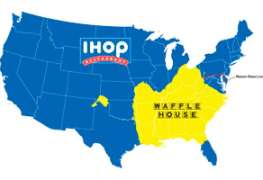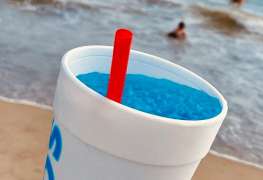The pissaladiere is a specialty of Provencal cuisine: a sort of pizza-tart, topped with caramelized onions and garnished with salty anchovies and black olives... a tasty mix of Mediterranean flavors!
Ingredients for a 13½x10-inch (35x25 cm) baking pan
For the dough
• 2 ½ cups (320 g) of all-purpose flour
• ¾ cup (180 ml) of water
• 1 tbsp (15 g) of extra virgin olive oil + as needed, for greasing
• 1 tsp (6 g) of salt
• 1/3 tsp (3 g) of malt (or sugar)
• ½ tsp (2 g) of active dry yeast (or ¼ oz-8 g of fresh yeast)
For topping
• 2,2 lbs (1 kg) of golden onions
• 2 ¾ tbsp (40 g) of extra virgin olive oil
• 2 cloves of garlic
• 5 sprigs of thyme
• 2 bay leaves
• 14 oz (400 g) of anchovies in salt (5,3 oz-150 g rinsed and drained)
• 3 tbsp (25 g) of capers in vinegar
• ¼ cup (50 g) of white sugar
• 30-35 Nicoise olives or black olives
• pepper to taste
Make the bread dough:
Take the bowl of a stand mixer, or a large bowl, and sift the all-purpose flour. Pour a little water into a small bowl, from the total amount, and dissolve the salt; before this, add a mixture of water, malt (or sugar), active dry yeast and oil: add the liquid ingredients all at once, whereas the salt should not be added to the yeast mixture. Beat with the paddle attachment; when the dough gathers around the paddle, we'll switch to the dough hook. Beat in the salt and water mixture. The dough has come together, so replace the paddle with the dough hook and beat for about 4-5 min, until nice and smooth. Form the dough into a ball shape and place in a bowl, lightly greased with oil, cover with cling film and allow to rise for about 2 hours until doubled in size. As an alternative, you can use puff pastry or shortcrust pastry; you can make them from scratch (watch the recipes on the Yellowsaffron channel) or buy them ready-made. Let it rest at a room temperature between 82°F (28°C) and 86°F (30°C). Put the extra virgin olive oil in a large pan, crush or chop 2 cloves of garlic and sauté until light brown, then add the golden onions, that have been peeled, cut in half and thinly sliced. Cook until softened, not browned; keep the heat low and immediately add the chopped thyme and bay leaves, the sugar and freshly ground pepper. Don't add salt as a mixture of chopped capers and anchovies will be added later. Mix well and cover with a lid; if it dries out, you can add 1-2 tbsp of hot water. Be careful not to brown or burn the onions. The onions are almost done, they are pretty soft, but not mushy. Meanwhile chop the capers, that have been drained of vinegar and squeezed, together with 1¾ oz (50 g) of anchovies. The anchovies in salt must be rinsed and drained in this way: place in a container and wash repeatedly under cold running water, very gently to keep them from breaking up; after rinsing off the salt, soak in cold water for 2-3 hours, changing the soaking water very often for a milder flavor. Separate the anchovies into 2 fillets, remove the guts and place on kitchen paper to drain. 14 oz (400 g) of anchovies in salt should make about 5,3 oz (150 g) of cleaned fillets; weigh out 1¾ oz (50 g) and chop with the capers. The onions are nice and softened, with no liquid left in the pan, turn off the heat and add the chopped capers and anchovies while the onions are still hot, so the anchovies can melt. The pissaladiere takes its name from the pissalat, which refers to the anchovy sauce that was originally used for topping the pissaladiere, whereas nowadays the recipe calls for fillets of anchovies in salt, rinsed and drained, just as we did. Once well blended, allow the mixture to cool. Preheat a static oven to 430°F (220°C) with the baking tray inside. Take a 13½x10-inch (35x25 cm) baking pan and grease with oil, take the dough and press it out with your fingers to cover the bottom of the pan. Top the dough with the cooled onion, caper and anchovy mixture, leaving a border of ¾ inch (2 cm) uncovered. Decorate the top with the remaining anchovies; lay the fillets along the diagonal lines and create a criss-cross pattern. The anchovies are undoubtedly the star of this recipe: the name pissalat literally means "salted fish" and it clearly refers to the anchovies. There is also an Italian version of the pissaladiere that is called pizzalandrea, pissadella or sardenaria, because often it was made with the cheaper sardines. Once the grid is done, fill the empty spaces between the lines with the olives. This recipe calls for cailettes, black olives from Nice, but if not available you can use taggiasca olives or local black olives. Anchovies in salt are better, as long as you rinse them well, whereas anchovies in oil would make your pissaladiere too salty. Bake at 430°F (220°C) for about 25 min.








Leave a comment